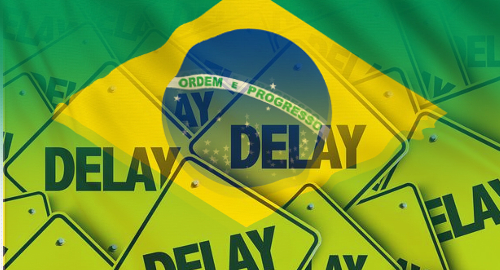 Brazil’s sports betting plans are reportedly facing both a delay and a significant reduction in the number of available licenses.
Brazil’s sports betting plans are reportedly facing both a delay and a significant reduction in the number of available licenses.
This weekend, Games Magazine Brasil reported that the Secretary of Public Policy, Planning, Energy and Lottery (SECAP) was preparing to announce a dramatic rethink of the country’s plans to regulate online and land-based sports betting.
The government has undertaken a couple public consultations on crafting its betting regulations and the final text was expected to be ready for release in March. But SECAP is reportedly planning a third round of consultations, meaning the regulations aren’t likely to be forthcoming until the second half of 2020.
Furthermore, while the government originally planned an open licensing regime with expectations of attracting around 50 operators, SECAP is reportedly now thinking of a significantly more limited number of licensees, similar to a concession model, with licenses valid for a nine-year term.
The changes are reportedly due to pressure from the Attorney General of the National Treasury (PGFN), which apparently felt there weren’t enough legal enforcement measures in the current proposals with which to target international online sportsbooks that continued to serve Brazilian customers after the regulated market’s launch.
The limited license model would seem to favor companies with a local connection, which makes Betsson’s recent acquisition of a 75% stake in Brazilian betting operator Suaposta appear all the more prescient.
Last month, SECAP secretary Alexandre Manoel announced his intention to leave political life “sometime this year.” While Manoel insisted at the time that the betting regulations would be issued “by the end of March,” the new consultation appears to have rendered Manoel’s assurances moot.
It remains to be seen whether the third public consultation might produce some favorable movement on the proposed betting tax rates. After originally proposing a 1% tax on betting turnover, the last consultation produced turnover tax rates of 3% for online betting and 6% for land-based wagers.
